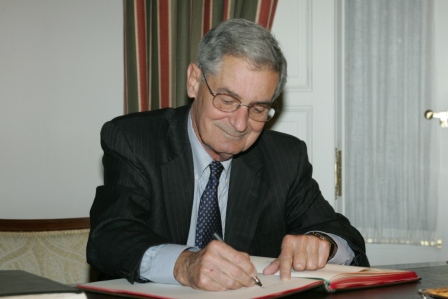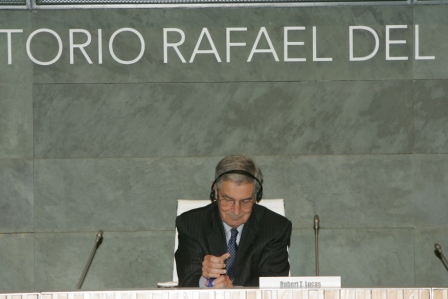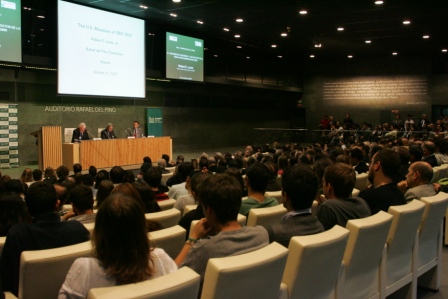The Rafael del Pino Foundation hosted the Master Lecture by Robert E. Lucas entitled "Economic growth and the effects of the 2008 US crisis", as part of the series of master lectures "Lessons from the crisis", on 21 October 2010.
Robert E. Lucas stated: "The use of fiscal multipliers is not done with an eye to long-term growth but to get the economy out of a slump. In the Keynesian models of the 1950s and 1960s, the estimates of the multiplier effect were very high, in terms of five times, in other words, it was thought that an extra ten dollars of government spending would translate into an extra fifty dollars of GDP. Nobody believes those figures now. The problem with the use of multipliers is that it is very short-sighted. If the government spends an extra ten dollars now, the question is, is this spending going to be permanent, is it going to affect the taxes I will pay in the future? People wonder about the future consequences of an action taken in the present. That is why the Obama administration's economic action memorandum, with estimates of one and a half times the multiplier, came as a huge surprise, as no one had seen figures like these in years. The document did not indicate where these figures came from. I think it was a misapplication of old-fashioned economic policy, even though old-fashioned policies were what was needed at the time".
Robert E. Lucas argued that the exchange of ideas is one of the key factors in development: "When I talk about the exchange of ideas and the debate of opinions in my research, I am talking about a social class, those who make it their job, what the Russians call Intelligentsia: people whose job it is to think and debate with others to solve problems. The interesting thing about the Industrial Revolution is that it has allowed that social class to grow enormously. In the United States and in most advanced countries we may be talking about the majority of human capital. In my view this is what makes economic growth sustainable in industrialised countries. And a country like China, which a few years ago employed 75% of its human capital in agriculture and animal husbandry, has managed to move a lot of that talent to cities and jobs where they can now contribute creatively to economic progress. I think that has been one of the keys to China's success.







